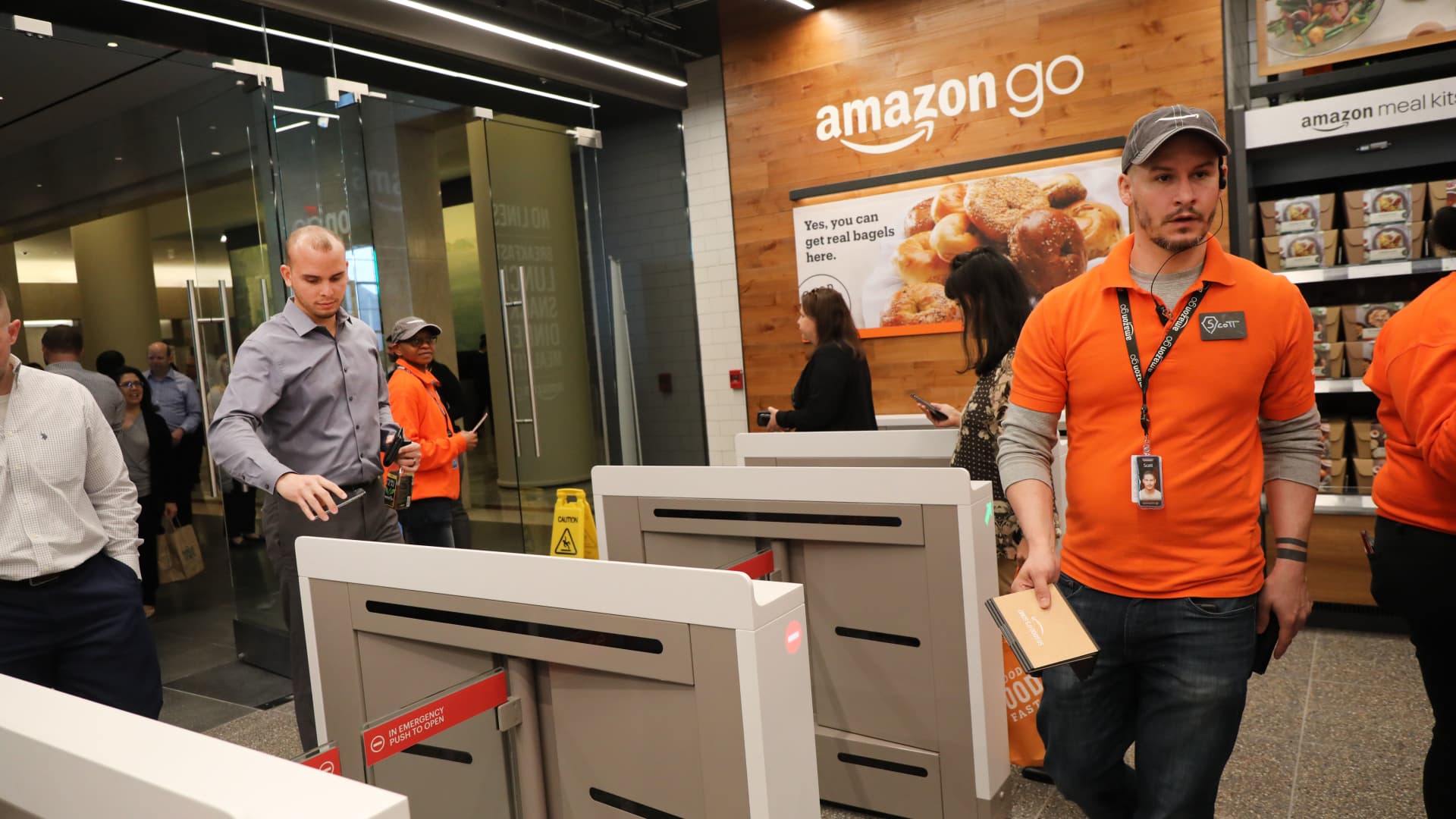People shop at the newly opened Amazon Go Store on May 07, 2019 in New York City. The cashier-less store, the first of this type of store, called Amazon Go, accepts cash and is the 12th such store in the United States located at Brookfield Place in downtown New York.
Spencer Platt | Getty Images
Amazon did not alert its New York City customers that they were being monitored by facial recognition technology, a lawsuit filed Thursday alleges.
In a class-action suit, lawyers for Alfredo Perez said that the company failed to tell visitors to Amazon Go convenience stores that the technology was in use. Thanks to a 2021 law, New York is the only major American city to require businesses to post signs if they’re tracking customers’ biometric information, such as facial scans or fingerprints.
Amazon introduced its Go stores in 2018, promising that customers could walk in, take whatever products they wanted off the shelves and leave without checking out. The company monitors visitors’ actions and charges their accounts when they leave the store. It opened its first New York location the following year, and has 10 stores, all in Manhattan, according to its website.
The lawsuit says that Amazon only recently put up signs informing New York customers of its use of facial recognition technology, more than a year after the disclosure law went into effect. Amazon didn’t immediately respond to a request for comment.
For Amazon Go to successfully track its customers and the items they take, it has to continuously monitor their bodies, the lawsuit says.
“To make this ‘Just Walk Out’ technology possible, the Amazon Go stores constantly collect and use customers’ biometric identifier information, including by scanning the palms of some customers to identify them and by applying computer vision, deep learning algorithms, and sensor fusion that measure the shape and size of each customer’s body to identify customers, track where they move in the stores, and determine what they have purchased,” it says.
Perez is represented by the Surveillance Technology Oversight Project, a legal advocacy group devoted to New York privacy protections.
“It means that even a global tech giant can’t ignore local privacy laws,” Albert Cahn, project director, said in a text message. “As we wait for long overdue federal privacy laws, it shows there is so much local governments can do to protect their residents.”






